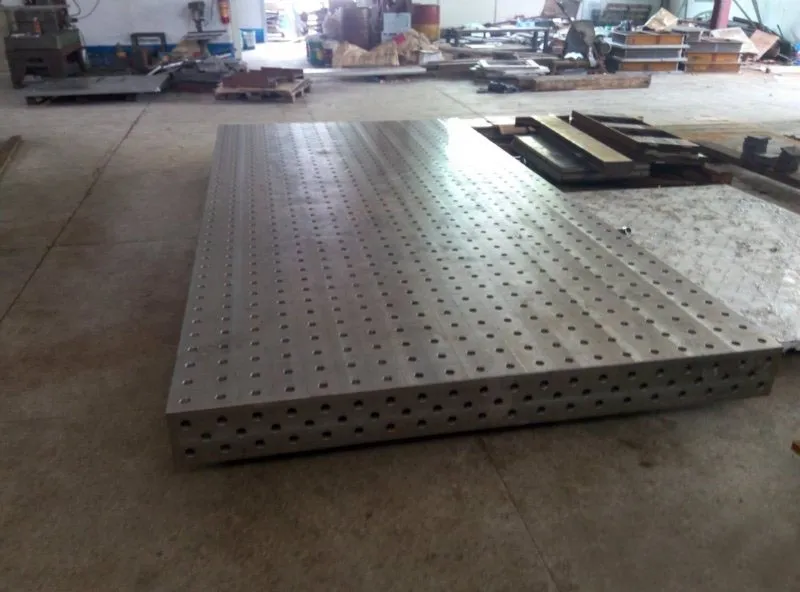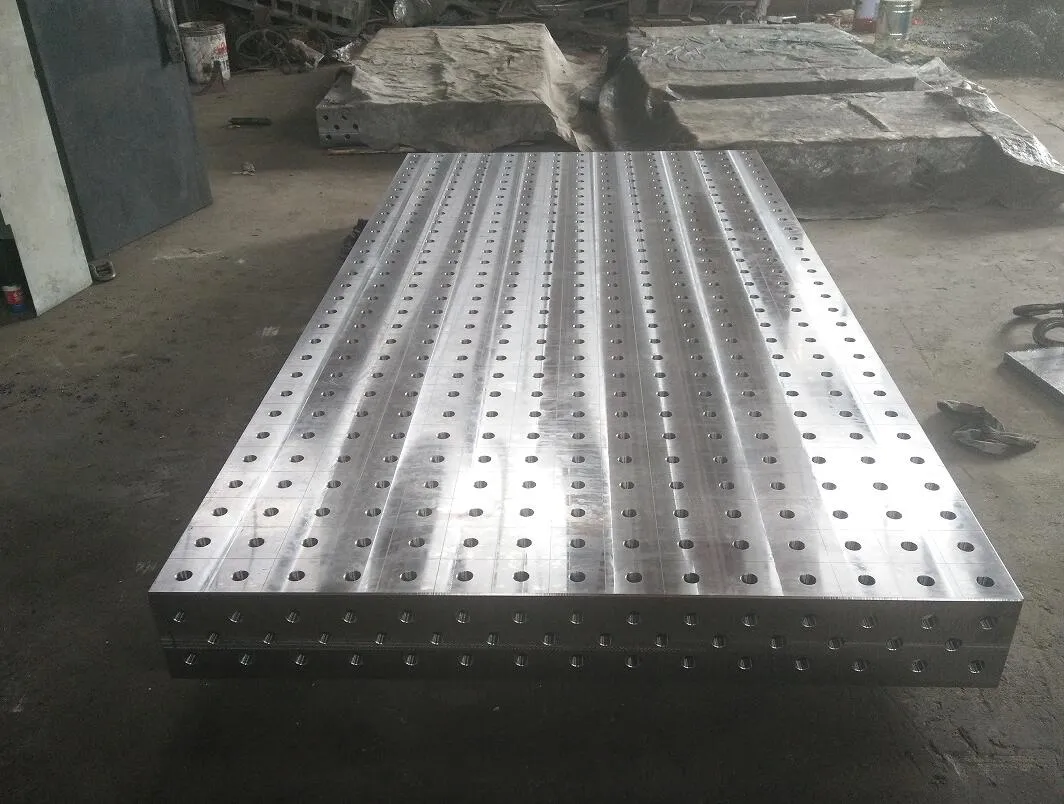May . 30, 2025 17:06 Retounen nan lis la
Revolutionizing Industrial Workholding for Fabrication Table Clamps
The industrial manufacturing landscape is undergoing a seismic shift as modular clamping systems redefine how workpieces are secured, aligned, and processed. For wholesalers supplying welding table clamps, fixture table clamps, and fabrication table clamps, these systems represent a game-changing opportunity to meet the growing demand for flexibility, scalability, and precision in high-volume production. This article explores how modular designs are transforming workholding, their impact on bulk procurement strategies, and the competitive advantages they offer to forward-thinking distributors.

The Rise of Fabrication Table Clamps in Industrial Manufacturing
Traditional workholding methods often rely on fixed, single-purpose clamps that limit adaptability and increase downtime during product changeovers. Modular clamping systems, by contrast, use standardized components—such as T-slot compatible welding table clamps, reconfigurable fixture table clamps, and multi-functional fabrication table clamps—to create versatile setups tailored to diverse applications.
For wholesalers, the appeal lies in streamlining inventory. Instead of stocking hundreds of specialized clamps, distributors can focus on modular bases, arms, jaws, and accessories that assemble into countless configurations. Automotive manufacturers, for example, use these systems to switch between welding jigs for different car models in minutes, slashing downtime and boosting throughput. Bulk buyers increasingly prioritize suppliers offering modular solutions, driving wholesalers to partner with manufacturers that standardize dimensions and materials across product lines.

Welding Table Clamps: Heat Resistance Meets Modular Flexibility
Welding table clamps face unique challenges: extreme heat, spatter, and repetitive stress. Modular systems address these with interchangeable components like copper-coated jaws (to resist spatter buildup) and quick-release levers for rapid adjustments. A single modular welding table clamp can adapt to hold pipes, sheets, or irregularly shaped parts by swapping jaws or adjusting arm angles.
Wholesalers benefit from reduced SKU complexity. By offering a core range of heat-resistant bases and customizable attachments, distributors cater to industries from shipbuilding to structural steel fabrication. For instance, a bulk order for modular welding table clamps might include standardized bases with optional magnetic or pneumatic attachments, allowing clients to tailor setups without requiring entirely new clamps.

Fixture Table Clamps: Precision Engineering for Mass Production
In precision machining and assembly, fixture table clamps must hold components within micron-level tolerances. Modular systems excel here by combining rigid, CNC-machined bases with adjustable arms and micro-adjustment screws. These clamps integrate seamlessly with optical alignment systems and robotic arms, making them indispensable in aerospace and electronics manufacturing.
For wholesalers, the key is ensuring compatibility with industry-standard fixture tables. Bulk buyers, such as automotive Tier 1 suppliers, often require clamps that interface with existing modular platforms like Bosch Rexroth or Item profiles. By stocking fixture table clamps with universal mounting options, wholesalers reduce clients’ integration headaches and position themselves as one-stop solution providers.
Fabrication Table Clamps: Versatility for Dynamic Workflows
Fabrication table clamps are the workhorses of metalworking shops, used in cutting, bending, and drilling operations. Modular designs take this versatility further with multi-axis adjustability and compatibility with add-ons like vacuum plates or hydraulic assists. For example, a modular fabrication table clamp can transition from securing sheet metal for laser cutting to holding I-beams for drilling without tool changes.
Wholesalers serving the construction equipment or HVAC sectors capitalize on this adaptability. Offering kits that pair fabrication table clamps with modular brackets and extensions allows clients to scale their workholding capacity as projects evolve. Additionally, corrosion-resistant coatings or stainless steel builds cater to industries like food processing or marine fabrication, where environmental resilience is critical.
FAQ: Navigating Welding Table Clamps in Wholesale
Can modular welding table clamps withstand high-temperature environments?
Yes. High-grade steel welding table clamps with copper or ceramic coatings resist warping and spatter damage, even in prolonged arc welding applications.
How do modular fixture table clamps improve ROI for bulk buyers?
Their reconfigurability reduces the need for dedicated clamps per product line, cutting inventory costs and storage space. A single system can serve multiple machining tasks with minor adjustments.
Are fabrication table clamps compatible with both manual and automated systems?
Many modular fabrication table clamps feature standardized interfaces for integration with robotic arms , making them ideal for hybrid production lines.
What certifications should wholesalers prioritize for welding table clamps?
Look for ISO 9001 (quality management), ISO 16047 (torque testing), and industry-specific standards like AWS (welding) to ensure compliance and build buyer trust.
How can wholesalers address concerns about welding table clamps?
Offer on-site training or video tutorials demonstrating quick assembly techniques. Highlight intuitive designs, such as color-coded components or tool-free adjustments, to ease adoption.
Modular clamping systems are not just a trend—they are the future of industrial workholding. For wholesalers, the shift toward adaptable welding table clamps, precision fixture table clamps, and versatile fabrication table clamps opens doors to higher-margin sales, stronger client relationships, and a competitive edge in a rapidly evolving market. By embracing modularity, standardization, and scalability, distributors position themselves as indispensable allies in the global push for smarter, faster, and more efficient manufacturing.
-
Why the Right Angle Ruler Reigns in MetalworkingNouvèlJul.21,2025
-
The Enduring Allure of Granite Boxes in Modern InteriorsNouvèlJul.21,2025
-
The Digital Gauging Revolution: Reshaping Thread Rings Inspection's FutureNouvèlJul.21,2025
-
How Modern Inspection Platforms Transcend Surface MeasurementNouvèlJul.21,2025
-
How Customization Drives Wholesale Success in Parallel RulersNouvèlJul.21,2025
-
Fortifying Permanent Steel Ground Anchors Against Corrosion's OnslaughtNouvèlJul.21,2025
PWODWI ki gen rapò









